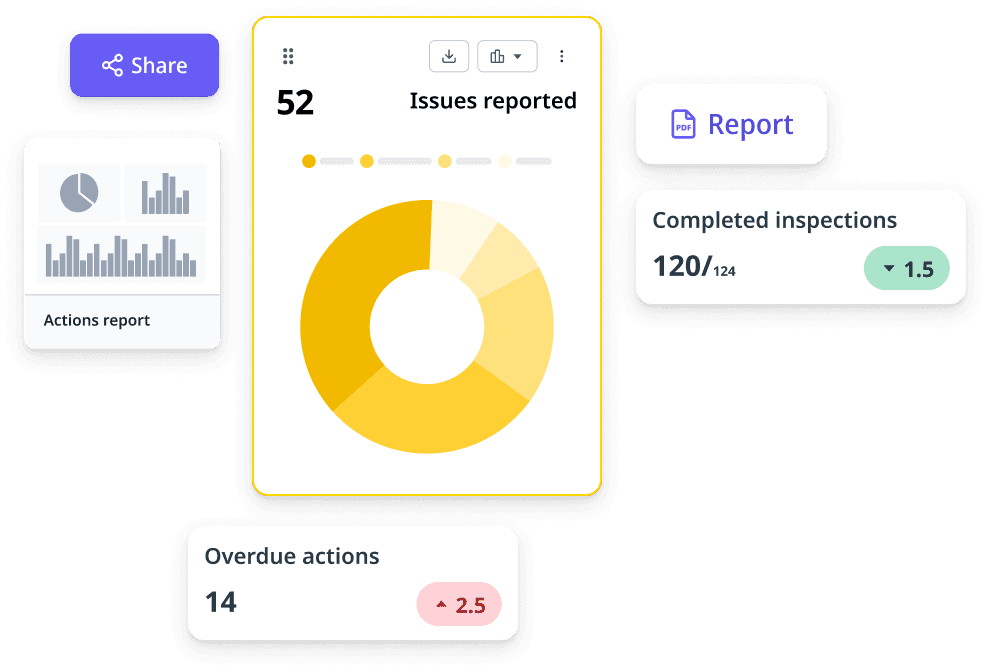- Home
Environment & Sustainability (ESG)
Trusted by over 1 million workers and leaders worldwide

Set your ESG goals in motion
Ensure sustainability practices are quickly adopted across your organization with digitized processes, training, and communications. Bridge the gap between HQ and the frontline by clearly communicating your sustainability commitments. You’ll have teams aligned with your ESG goals in no time and eliminate paper every step of the way.
Drive efficiency, reduce material waste
The SafetyCulture platform helps reduce time and material waste by streamlining operations, task management, and reporting. With all your data in one place, you can spot inefficiencies, make better decisions, and enact change to deliver on your sustainability initiatives.


Ensure compliance with environmental standards
Conduct regular assessments to ensure your ESG framework is up-to-date with global ESG reporting standards. Identify most relevant issues and determine which needs immediate action to prioritize efforts and allocate resources effectively.
Prevent environmental incidents
Encourage a supportive and inclusive culture where your teams are comfortable reporting and addressing environmental risks. Use data from risk assessments, incident reports, and asset history to quickly identify and address potential risks and hazards before they become a problem.

All your ESG needs in one place
SafetyCulture is the platform of choice
Streamline operations
Collect, store, and analyze data all in one place. Ensure sustainability practices are quickly adopted across your organization with digitized checklists, training, and communications.
Anticipate & identify risks
Identify areas of improvement by conducting frequent digital risks assessments. Monitor and track identified risks so you can take corrective and preventive measures and safeguard your business.
Monitor & measure performance
Track and monitor changes in the work environment that can threaten sustainability efforts. Spot trends, review the effectiveness of key controls, and anticipate areas that need attention.
Get unparalleled support from trusted advisors
Get up and running fast with dedicated onboarding support to meet your unique business needs. Our team of experts will help you navigate complex ESG challenges with ongoing success support.
Turn ESG gaps into lasting business results
$90B
lost every year to wasted management time
93%
of managers have ideas for improvement
55%
of ideas ever get implemented

Adrian Wood
Senior Quality Engineer, Bri-Stor Systems

Develop and implement ESG and sustainability practices
Adopt ESG and sustainability practices for significant and improved financial operations and financial performance, enhanced reputation and long-term value. Implement sustainable practices and comply with environmental regulations.
Explore solutions for
EHS
Health & Safety Management
Keep teams safe on the job while promoting a safety culture across your organization
GRC
Risk & Compliance
Identify, evaluate and mitigate risks to your teams and assets through greater visibility and a data-driven approach.
Quality
Operational Excellence
Optimize processes and drive productivity, greater efficiencies and quality products or services at scale.





